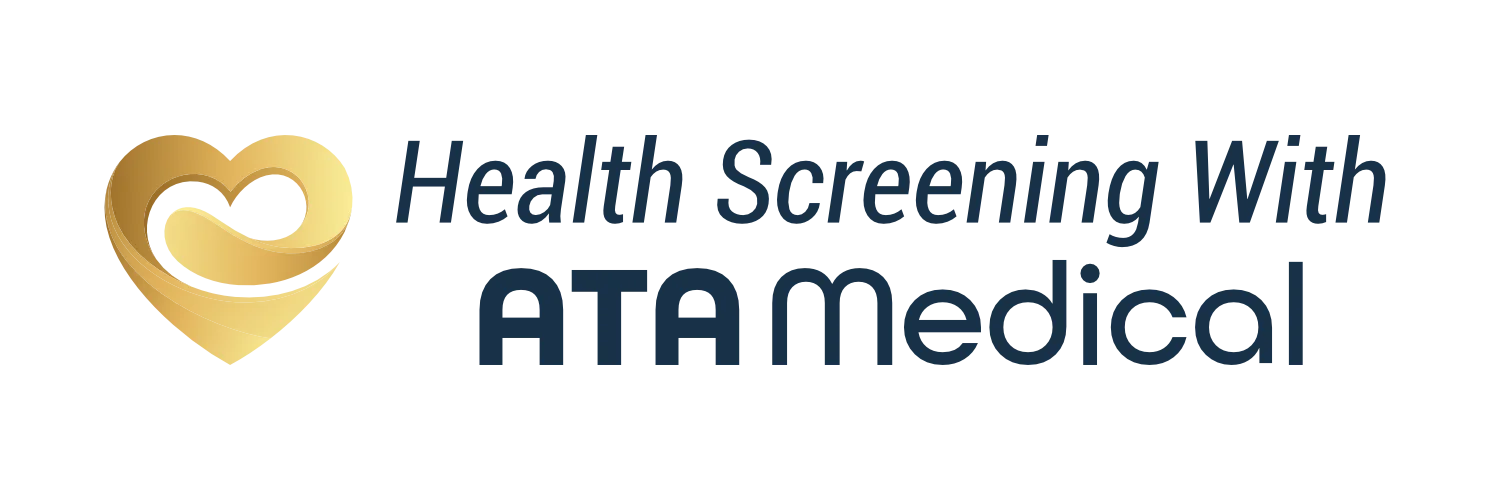Cholesterol Levels Singapore
What Is High Cholesterol?
High cholesterol, also called hyperlipidemia, refers to an elevated level of "bad" cholesterol in the bloodstream. Cholesterol is a type of lipid, a fat-like substance that plays important roles in the body, but having too much can be harmful. The main types of lipids include:
- Low-Density Lipoprotein (LDL): The "bad" cholesterol that can accumulate in the arteries, leading to atherosclerosis (narrowing and hardening of arteries).
- High-Density Lipoprotein (HDL): The "good" cholesterol that helps remove excess cholesterol by transporting it to the liver for excretion.
- Triglycerides: A type of fat formed from excess calories. High triglycerides, especially with high LDL or low HDL, raise the risk of heart disease.
Symptoms of High Cholesterol
High cholesterol develops gradually and typically does not cause any noticeable symptoms, often being detected only through a blood test. However, prolonged high cholesterol can lead to serious cardiovascular complications, such as coronary artery disease, heart attacks, or strokes. These conditions may present with symptoms like chest pain, shortness of breath, or sudden weakness in the limbs. Regular cholesterol screenings are vital for early detection and treatment.
Causes & Risk Factors for High Cholesterol
Several factors contribute to high cholesterol levels, including:
- Diet: Consuming foods high in saturated fats, trans fats, such as red meat, dairy products, and processed foods, can increase cholesterol levels.
- Lifestyle: Lack of physical activity, smoking, and excessive alcohol consumption contribute to higher cholesterol levels.
- Age and Gender: Cholesterol levels naturally rise with age. After menopause, women are more likely to have elevated LDL cholesterol.
- Genetics: Some individuals may inherit a predisposition to high cholesterol, known as familial hypercholesterolemia.
Other risk factors include chronic conditions such as obesity, high blood pressure, and diabetes.
How Is High Cholesterol Diagnosed?
High cholesterol is diagnosed through a simple blood test called a lipid panel which tests for total cholesterol levels, LDL cholesterol, HDL cholesterol and triglycerides.
Cholesterol Levels & Conversion
The following table outlines the levels that indicate high cholesterol:
| Classification | Level (mmol/L) | Level (mg/dL) |
|---|---|---|
| Total Blood Cholesterol | ||
| Desirable | < 5.2 mmol/L | < 200 |
| Borderline High | 5.2 - 6.1 mmol/L | 200 - 239 |
| High | ≥ 6.2 mmol/L | ≥ 240 |
| LDL Cholesterol | ||
| Optimal | < 2.6 mmol/L | < 100 |
| Desirable | 2.6 - 3.3 mmol/L | 100 - 129 |
| Borderline High | 3.4 - 4.0 mmol/L | 130 - 159 |
| High | 4.1 - 4.8 mmol/L | 160 - 189 |
| Very High | ≥ 4.9 mmol/L | ≥ 190 |
| HDL Cholesterol | ||
| Low | < 1.0 mmol/L | < 40 |
| Desirable | 1.0 - 1.5 mmol/L | 40 - 59 |
| High | ≥ 1.6 mmol/L | ≥ 60 |
| Triglyceride | ||
| Optimal | < 1.7 mmol/L | < 150 |
| Desirable | 1.7 - 2.2 mmol/L | 150 - 199 |
| High | 2.3 - 4.4 mmol/L | 200 - 399 |
| Very High | ≥ 4.5 mmol/L | ≥ 400 |
In Singapore, routine cholesterol screenings are recommended for adults every 3 years if cholesterol levels are within the desirable range. More frequent screenings may be recommended by a doctor, particularly for individuals with risk factors such as a family history of heart disease or diabetes.
Preventing & Managing High Cholesterol
Preventing and managing high cholesterol involves a combination of lifestyle changes:
- Healthy Diet: A diet low in saturated and trans fats, and rich in fruits, vegetables, whole grains, and lean proteins, can help lower cholesterol levels. For adults, fat intake should be limited to 20-35% of daily calories.
- Regular Exercise & Weight Management: Physical activity, such as walking, swimming, or cycling, can raise HDL cholesterol and lower LDL cholesterol, while helping to maintain a healthy weight.
- Smoking Cessation & Reduced Alcohol Intake: Quitting smoking and limiting alcohol consumption can improve cholesterol levels and overall cardiovascular health.
- Controlling Hypertension: Managing blood pressure is also important in reducing the risk of heart disease in individuals with high cholesterol.
- Regular Screening: Regular screenings allow for early detection and prompt intervention.
If lifestyle modifications are insufficient in reducing cholesterol, doctors may prescribe medications like statins, such as atorvastatin, to help lower cholesterol levels.
Disclaimer: This information is for educational purposes only and is not a substitute for professional medical advice. Always consult a doctor for diagnosis and treatment tailored to your individual needs.
Price of Blood Test for Cholesterol Levels in Singapore
At healthscreening.sg, we offer lipid profile testing to assess cholesterol levels, along with other related screenings to evaluate heart health. Our prices are as follows:
| Test | Price* |
|---|---|
| [Subsidised] Screen for Life (Eligible Singaporeans / CHAS Green) | From $5 |
| [Subsidised] Screen for Life (CHAS Blue / Orange) | $2 |
| [Subsidised] Screen for Life (Merdeka Generation) | $2 |
| [Subsidised] Screen for Life (Pioneer Generation) | $0 |
|
Essential Lipid Profile Full Cholesterol Test (Total, LDL, HDL, Triglycerides, HDL Ratio) |
$21.80 |
|
Cardiac Screening 3 Essential Lipid Profile + Apolipoprotein B (ApoB) + HsCRP |
$63.22 |
|
Cardiac Screening 4 Cardiac Screening 3 + Homocysteine + Fasting Insulin + Glucose Note: Fasting is required for accurate results of Fasting Insulin and Glucose. |
$172.22 |
| [Optional] Lipoprotein (a) | $59.95 |
| [Optional] CT Calcium Score | $403.30 |
| [Optional] Coronary Angiogram (CTCA) | $2299.90 |
*Prices are NETT and inclusive of GST.
Please note that for walk-in tests, a consultation fee of $49.05 NETT will apply. For Screen For
Life-eligible or Healthier SG-enrolled patients, consultation is fully subsidised.
Alternatively, we offer health screening
packages that include cholesterol profile testing starting at $76 NETT for a more comprehensive
assessment of your overall health.
How Long Does a Cholesterol Blood Test Take?
A blood test at our clinic usually takes between 30-60 minutes. However, during peak periods such as
weekends, there may be additional waiting times. We appreciate your understanding and patience. To
ensure a smoother visit, we encourage you to contact us via WhatsApp to enquire about the best times to
come in.
Alternatively, we provide home
health screenings or blood tests
at your convenience.
How Long Do Cholesterol Blood Test Results Take?
Cholesterol level test results are generally available within 2-3 working days and will be sent to you
via email. Your doctor will provide more detailed information regarding the turnaround time during your
visit.
If you need your results urgently, we are able to provide the soft copy report within 24 hours for
$32.70 NETT. Please note that this service is not available on weekends.
How Do I Make an Appointment?
Health Screening Clinics in Singapore
We offer comprehensive health screening services at two conveniently located clinics, both within
walking distance of Tanjong Pagar (EW13) and Orchard Boulevard (TE15) MRT stations.
Our clinics are equipped with advanced diagnostic technologies, including Chest X-ray, Ultrasound, Bone Mass Density (BMD) scanners, and
Treadmill Stress Test machines. Additionally, our Orchard clinic is equipped with a CT (Computed Tomography) scanner,
enabling us to provide more detailed health assessments. Bookings can be easily made via WhatsApp or by
phone.






Navigate Easy With Google Maps
Health Screening Singapore (Anson House)
Nearest MRT: EW15 Tanjong PagarHealth Screening Singapore (Camden Medical Centre)
Nearest MRT: TE13 Orchard BoulevardHealth Screening Singapore (CPF Jurong Building)
Nearest MRT: NS1/EW24 Jurong EastFrequently Asked Questions (FAQ)
A healthy total cholesterol level in Singapore is less than 5.2 mmol/L. LDL ("bad" cholesterol) should be less than 2.6 mmol/L, and HDL ("good" cholesterol) should be 1.0 mmol/L or higher.
A total cholesterol level of 5.7 mmol/L is considered borderline high. It may require lifestyle changes and monitoring to reduce the risk of heart disease.
Yes, a total cholesterol level of 6.6 mmol/L is classified as high and increases the risk of cardiovascular diseases.
Cholesterol levels generally increase with age, but the target total cholesterol for adults remains less than 5.2 mmol/L, regardless of age. LDL levels should ideally stay under 2.6 mmol/L.
To lower cholesterol, focus on dietary changes (reduce saturated and trans fats), increase physical activity, and follow any medications prescribed by your doctor. However, significant changes usually take weeks to months.
The desirable LDL level is less than 2.6 mmol/L. For those with higher cardiovascular risk, even lower targets may be recommended.
High cholesterol typically has no obvious symptoms. However, in advanced cases, signs may include chest pain (angina), shortness of breath, leg pain when walking, yellowish skin deposits, and stroke symptoms like sudden weakness.
Yes, a total cholesterol level of 7.5 mmol/L is considered dangerously high and significantly increases the risk of cardiovascular diseases. Immediate medical attention and lifestyle changes are necessary.
A total cholesterol level of 6.2 mmol/L or higher is considered alarming and poses a high risk of heart disease or stroke.
While significant cholesterol reduction typically takes more time, small improvements can be made by adopting a plant-based diet, avoiding saturated fats, and increasing fiber intake.
Eggs can be included in a healthy diet when consumed in moderation. While eggs contain cholesterol, they do not significantly raise blood cholesterol for most people and can provide valuable nutrients as part of a balanced diet.
Green tea, oat-based drinks, and beverages fortified with plant sterols or stanols have been shown to help lower cholesterol levels. These drinks can support heart health by reducing LDL ("bad") cholesterol.
A desirable cholesterol level includes a total cholesterol of less than 5.2 mmol/L, an LDL level below 2.6 mmol/L, and an HDL level of 1.0 mmol/L or higher.
Avoid foods high in saturated and trans fats, such as red meat, full-fat dairy products, fried foods, and processed snacks like cookies and chips.
A total cholesterol level of 6.2 mmol/L or higher is considered too high and increases the risk of cardiovascular diseases.
